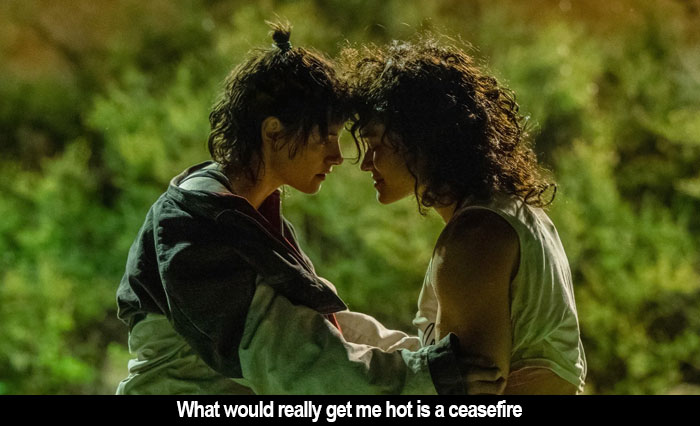Love Lies Bleeding (2024)
****/****
starring Kristen Stewart, Katy O’Brian, Jena Malone, Ed Harris
written by Rose Glass & Weronika Tofilska
directed by Rose Glass
by Walter Chaw Love is like a lamb and love is like a sledgehammer. Love crawls into your head and fills the empty spaces, the canyons and tunnels and holes in between, making it so full of noise it makes you fucking nuts. It’s too big, but it keeps growing. It kills you, but it won’t let you die. Love makes every love story a tragedy. Everyone writes about love, but the only person to ever do it right was Maurice Sendak, who wrote a survival guide for the fury called Where the Wild Things Are. Therein, a little boy named Max threatens to leave his friends, monsters on an island where they all jamboree. They beg him to stay: “Please don’t go. We’ll eat you up we love you so.” And they will, you know, because they have fangs and dangerous desires and horrible appetites. Love growls and gnashes its teeth. Love’s claws rattle like castanets. Love roars. Rose Glass’s Love Lies Bleeding is a love story about two terrible women and two terrible men who do bad things to one another and for one another because love is the fire in which, happily, we burn.


